science
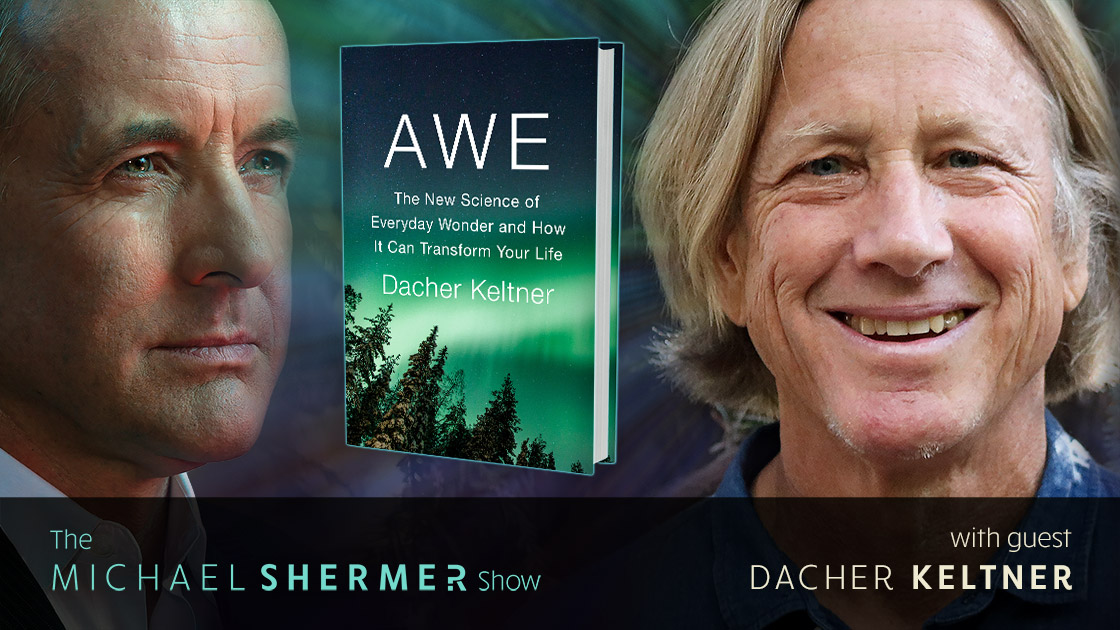
Shermer and Keltner discuss: the death of his brother and how this led to his study of awe • an operational definition of awe • the reliability (or unreliability) of self-report data in social science • how to quantify and measure the experience of awe • What are emotions and how can they be measured? • How has the scientific understanding of emotions changed? • predictors of awe: nature, music, art, dance, movement/exercise, love & friendships • awe in moral…
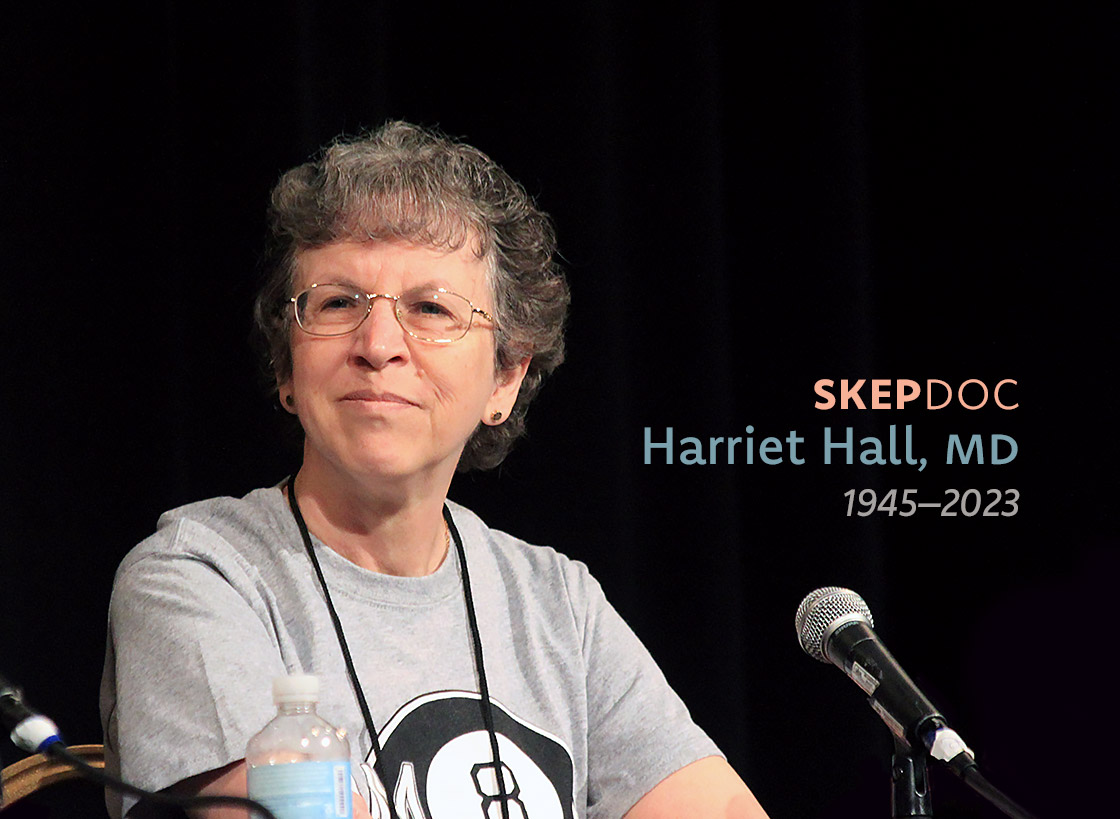
All of us at Skeptic magazine—along with those in the larger skeptical and scientific communities—are sad to announce the passing of Harriet Hall, M.D., widely known as the SkepDoc. Michael Shermer always looked forward to editing Harriet’s SkepDoc column, not only because she was such a lucid writer and critical thinker, but because he learned so much from her…
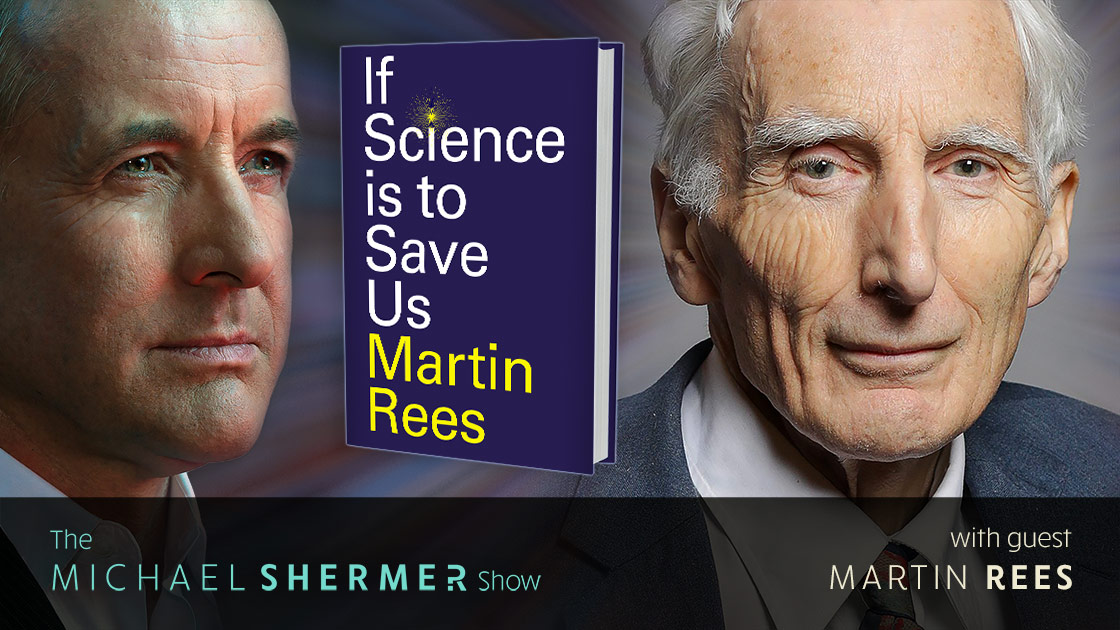
Shermer and Rees discuss: existential threats • overpopulation • biodiversity loss • climate change • AI and self-driving cars, robots, and unemployment • his bet with Steven Pinker • his disagreement with Richard Dawkins • how science works as a communal activity • scientific creativity • science communication • science education • why there aren’t more women and people of color in STEM fields • verification vs. falsification • Bayesian reasoning and scientific progress • Model Dependent Realism and the…
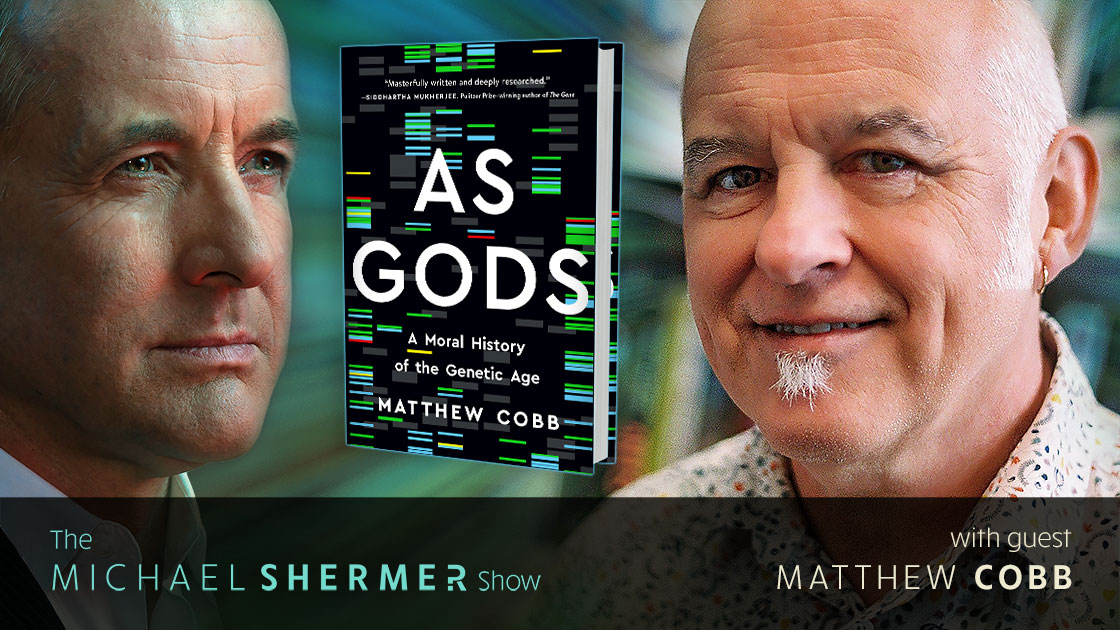
Shermer and Cobb discuss: objections to genetic engineering (political, religious, cultural) • selective breeding • recombinant DNA • the ethics of genetics • patenting life • gene therapy • gene editing • CRISPR • literature and films on the dangers of genetic engineering • bioweapons • 3 Laws of Behavior Genetics and what people fear about it.
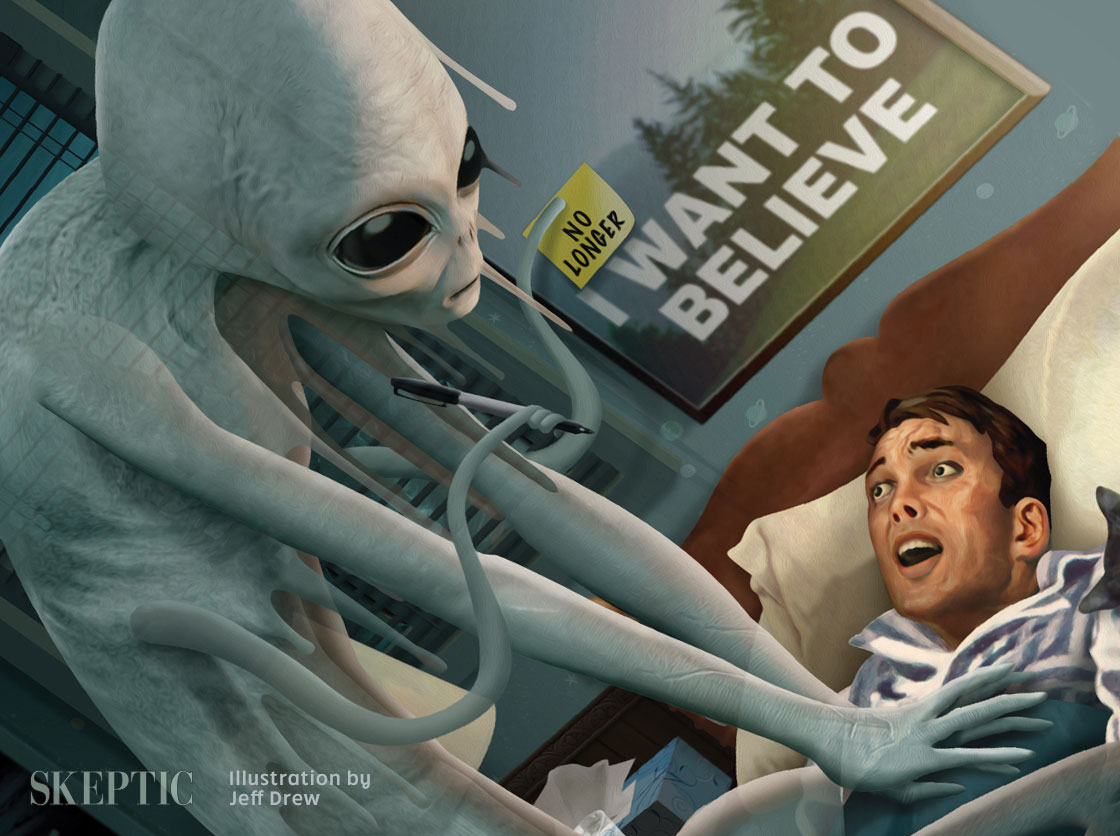
Alien abductions are among the most curious and interesting of all human psychological phenomena, and this article explores the different theories that explain from a scientific perspective what, exactly, is going on in someone’s brain when they feel like they’ve been abducted by aliens (assuming, of course, that they’re not actually being abducted by aliens).
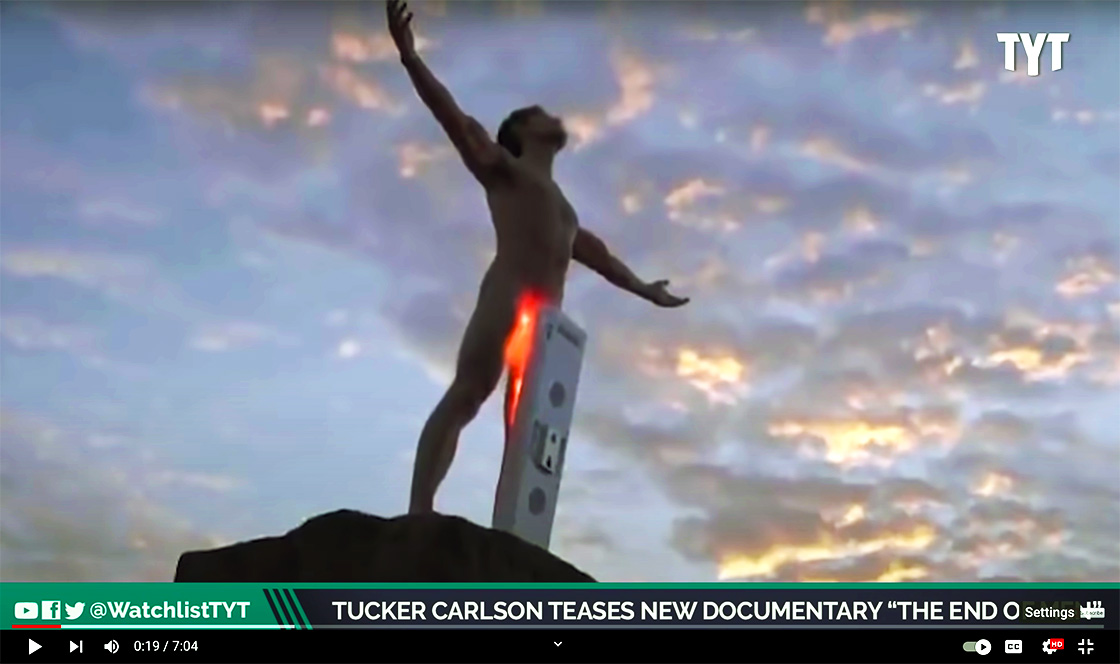
Harriet Hall, M.D. examines the evidence that “testicle tanning” or red light therapy increases testosterone levels. She also discusses a related fad: butthole tanning, also known as butt-chugging, but better described as perineal sunning. Why do people fall for these fads? The answer is complex.
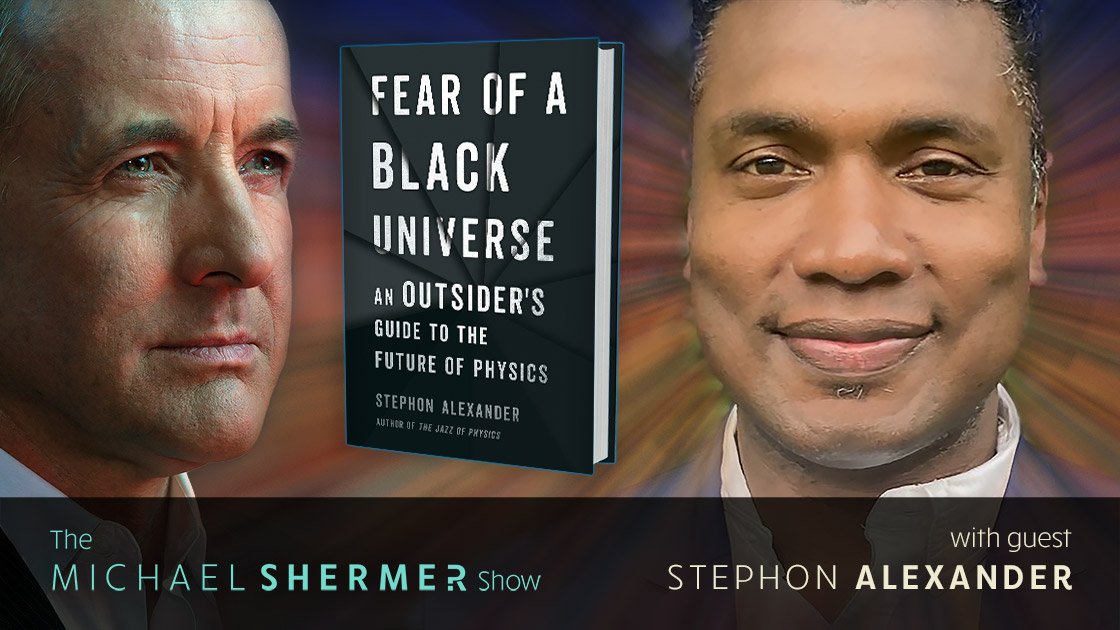
Shermer and Alexander discuss: his journey from Trinidad to the Bronx to professor of physics • what it’s like being Black in a mostly White and Asian field of science • systemic racism and misogyny • how to be an outsider inside a science • how to tell the difference between revolutionary and worthless new ideas • how do laypeople understand whether something is good science or not? • the double-slit experiment • superposition • connections between quantum physics and…
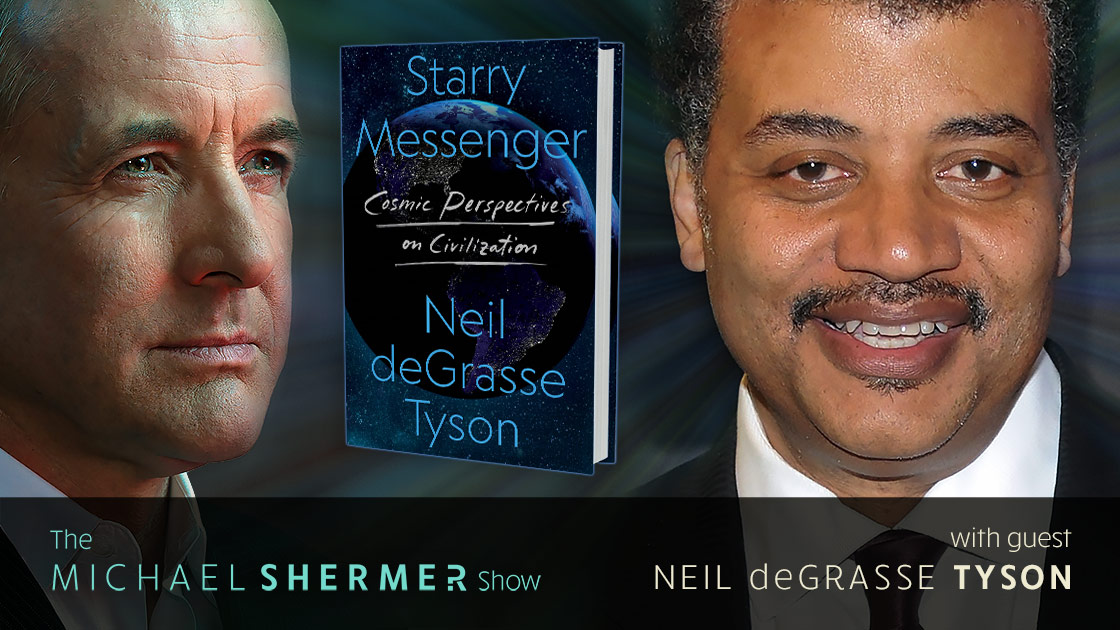
Shermer and Tyson discuss: why he decided to write about social, cultural, and political issues now • conflict and resolution in science and society • moral progress in society and why it happens • meatarians and vegetarians • race and gender • law and order • the principle of interchangeable perspectives • conflicting rights and how to resolve them • Rationalia (Neil’s hypothetical country whose laws are based on rationality) • life and death • how long Neil would like…
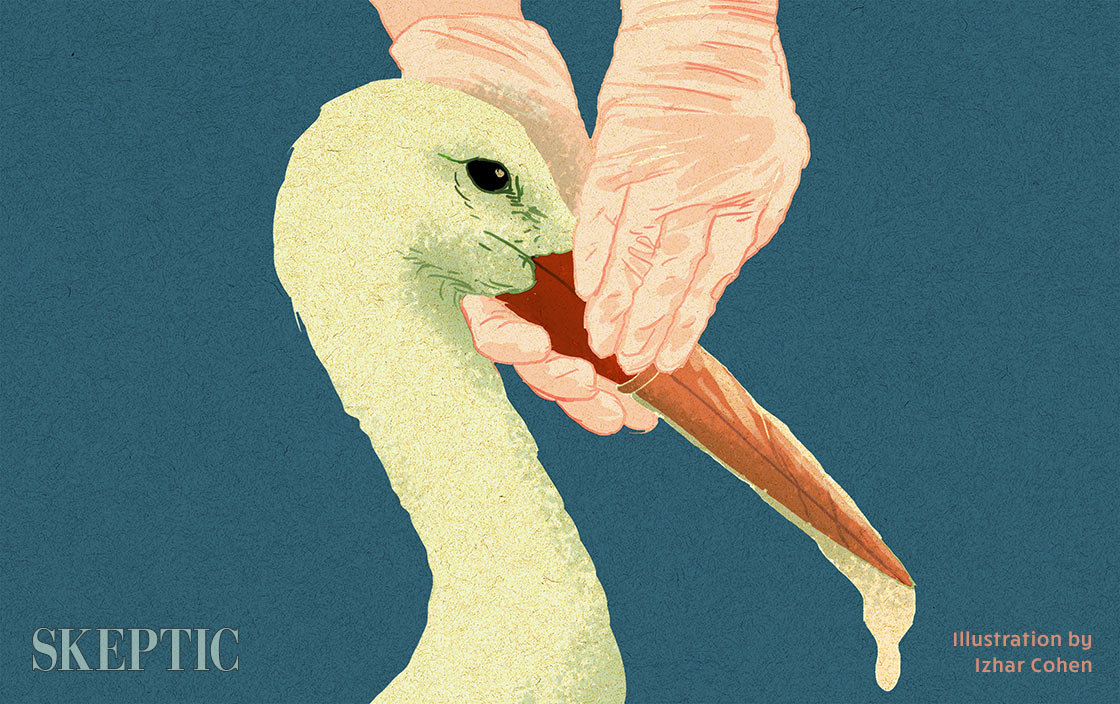
The Pro-Life vs. Pro-Choice positions on the contentious abortion issue outline the terms of the debate. In this article Michael Shermer defends the position of choice and women’s reproductive rights as the most moral and rational position, even while acknowledging that Pro-Life proponents have good arguments. Ultimately this issues comes down to conflicting rights, namely those of the unborn fetus to live and those of the mother to choose what is best for her life. As in most matters in…
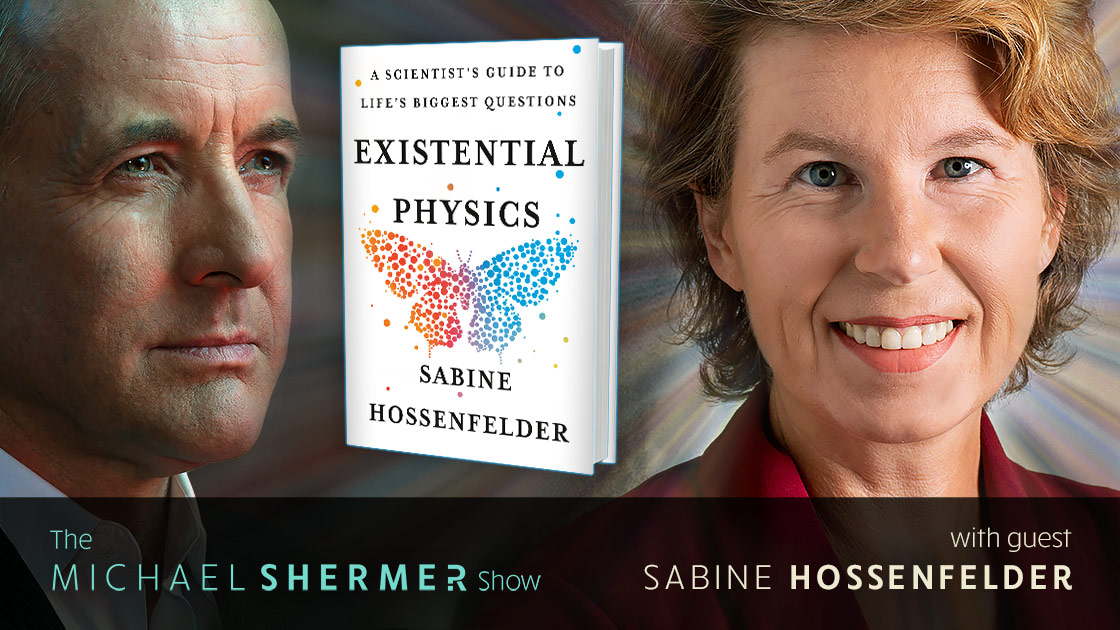
What is time? Does the past still exist? How did the universe begin and how will it end? Do particles think? Was the universe made for us? Why doesn’t anyone ever get younger? Has physics ruled out free will? Will we ever have a theory of everything? To examine these ideas, Shermer speaks with Sabine Hossenfelder, a research fellow at the Frankfurt Institute for Advanced Studies, Germany. She has published more than eighty research articles about the foundations of physics,…
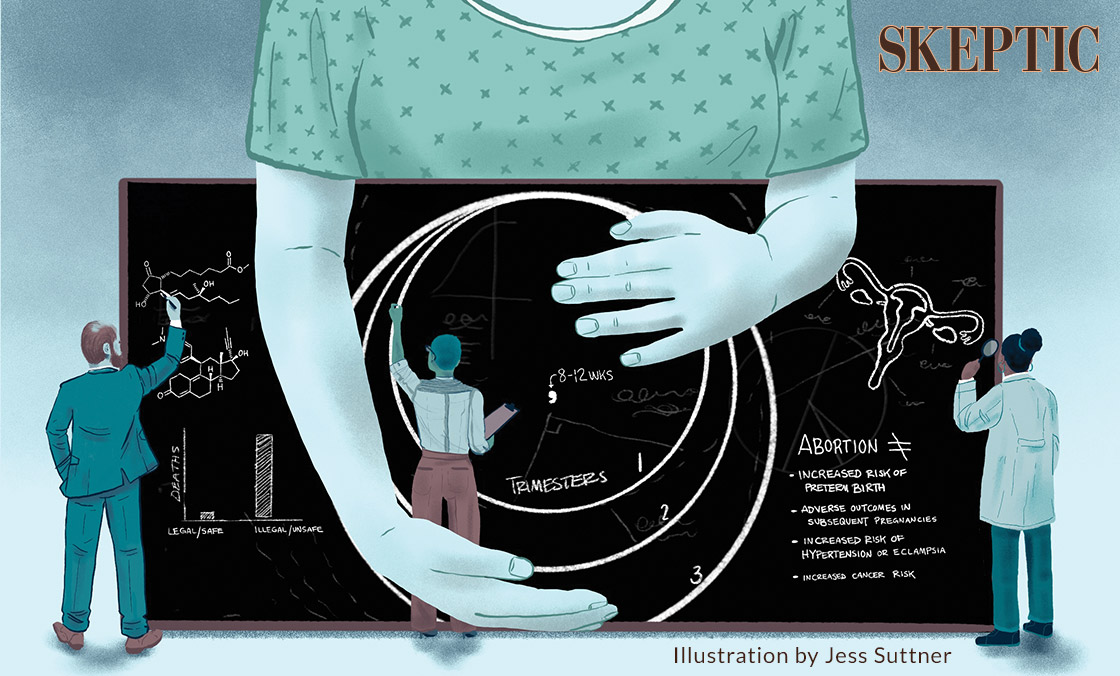
The issue of abortion has never been more polarizing and much of the controversy surrounds medical claims about the procedure which Harriet Hall, MD (aka the SkepDoc) addresses in this article for our special issue on Abortion Matters. What does medical science say about when life begins? When can a fetus survive outside the body of the mother? When does the fetal heartbeat become detectable? What are the short-term and long-term consequences of undergoing an abortion? What are the risks…
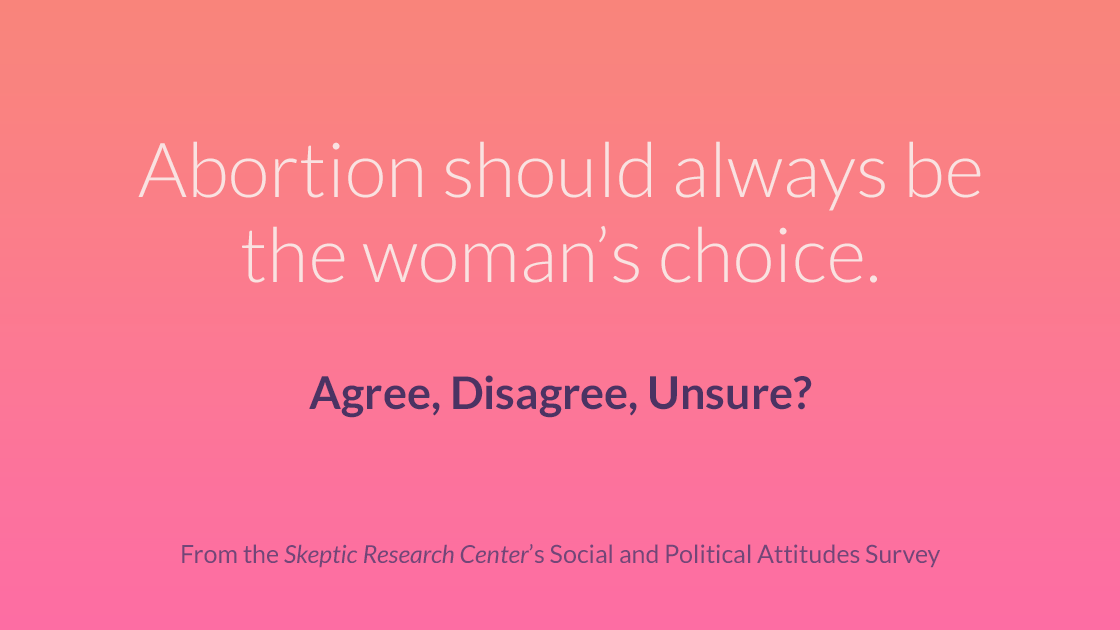
Although abortion is often framed as a women’s issue, men make up half of the electorate and are more often pro-life. In this study the Skeptic Research Center report on men’s attitudes toward abortion is considered in the larger context of the national abortion debate, which has intensified since the Supreme Court overturned the 1973 Roe v. Wade decision guaranteeing women a Constitutional right to choose abortion.
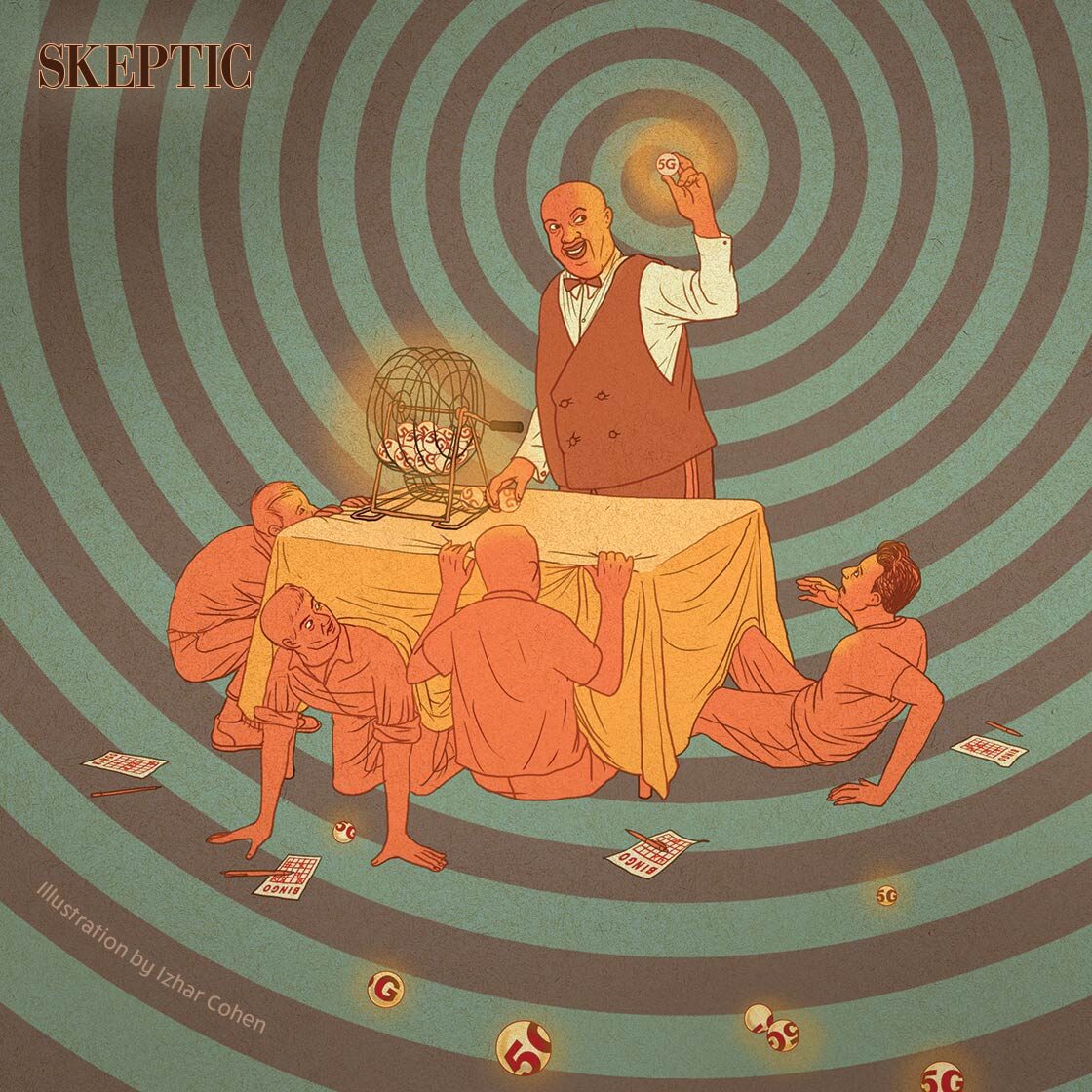
With the widespread use of cell phone towers and internet technology, concerns have arisen over health effects of wireless energy, most notably with the recent introduction of Fifth Generation (5G) wireless network technology. Public health expert Raymond Barglow reviews the epidemiological data and science behind these concerns and shows that there is, in fact, nothing to worry about.
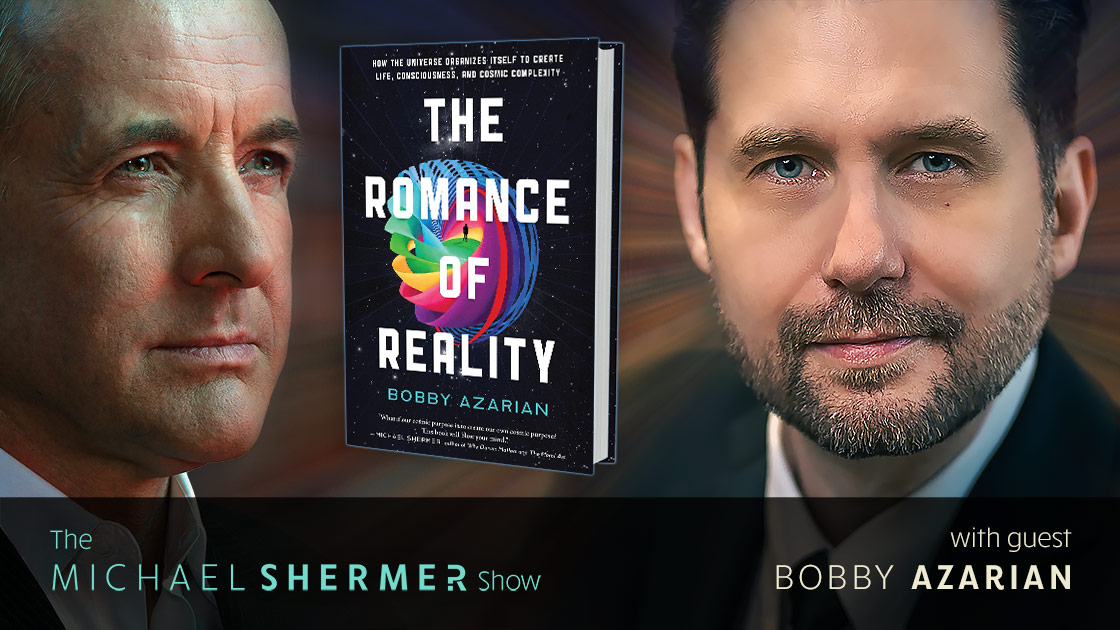
Shermer and Azarian discuss: laws of thermodynamics and directionality • how complexity formed after the Big Bang • laws of nature: discovered or created or both? • Stephen Jay Gould and contingency vs. necessitating laws of nature • convergent evolution and directionality in evolution • the left wall of simplicity • leading theories for the origin of life • complexity theory and emergence • consciousness, the self, and other minds • free will, determinism, compatibilism, panpsychism • Is there purpose…
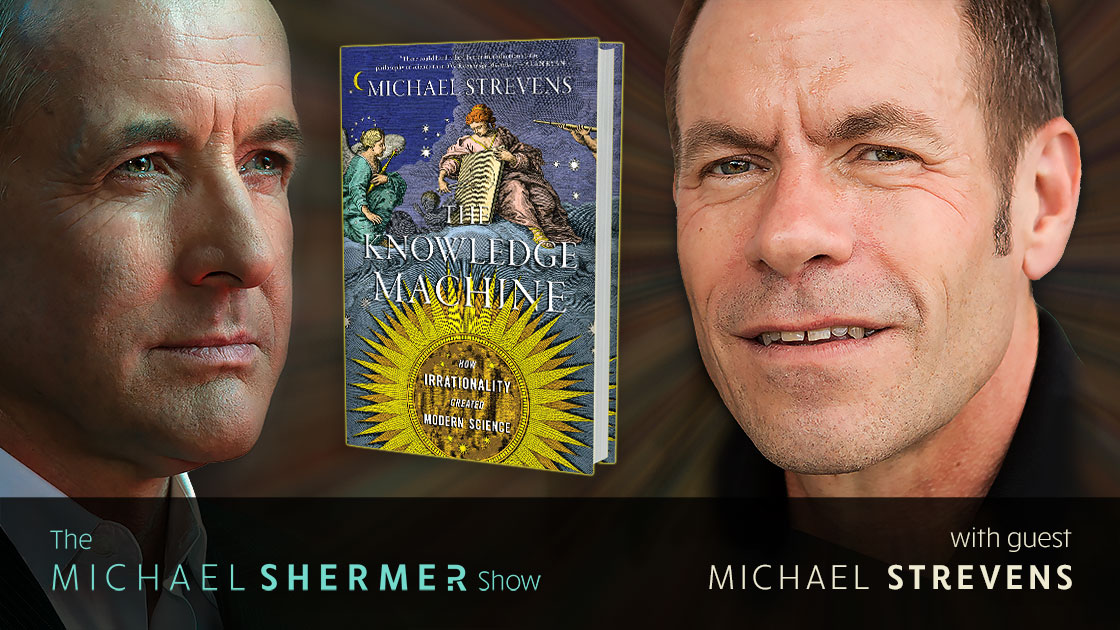
Shermer and Strevens discuss: irrationality and how it drives science • the knowledge machine • the replication crisis, what caused it, and what to do about it • verification vs. falsification • the iron rule of explanation • Bayesian reasoning vs. falsification • climate/evolution skeptics • model dependent realism • humanism • theistic arguments for: God, origin of life, morality, consciousness • known knowns, known unknowns, and unknown unknowns • how to evaluate media sources of science.
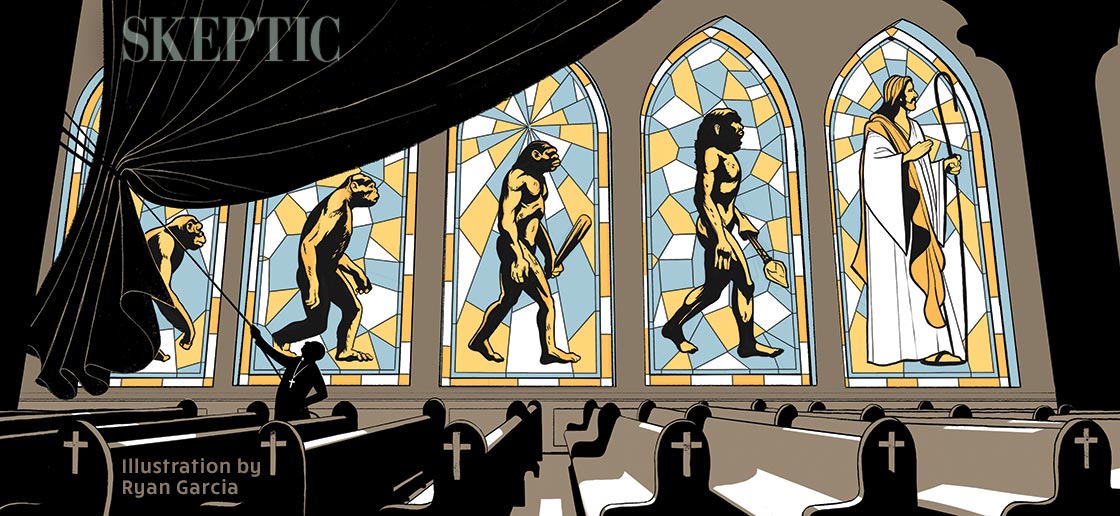
If you give Christians a choice between Jesus and Darwin by telling them that the theory of evolution means you have to be an atheist, they’re going to pick Jesus every time. In this article, Larry Arnhart argues that Christians should accept the theory of evolution not only because it’s true but also that it does not mean they have to give up their religion.
In this letter to Bert Hölldobler, following up on his defense of his long-time colleague E. O. Wilson, who has been falsely accused of racism and knowingly promoting race science, Mel Konner, who also knew and worked with Wilson, reinforces the point that Wilson’s defense of Philippe Rushton was done out of concerns about academic freedom; in fact, Konner notes that there are other reasons for critiquing Wilson, primarily for his ultimate rejection of kin selection — one of the…
Mel Konner, in response to Bert Hölldobler’s defense of E. O. Wilson, reinforces the point that Wilson’s defense of Philippe Rushton was done out of concerns about academic freedom; PLUS: Michael Shermer speaks with Oliver Stone about Ukraine, Putin, and the military-industrial complex.
Mark W. Moffett remind us that breakthroughs in science often come about by exploring points of similarity between things that are normally seen as very different. PLUS: Michael Shermer speaks with quantum physicist, Jim Al-Khalili, who reveals how 8 lessons from the heart of science can help us all get the most out of our lives. PLUS: In SRC Report PCIS-005, we take a look at Conspiracy Theory Endorsement by Generation.
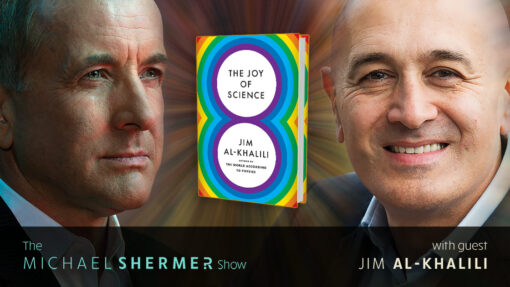
Michael Shermer speaks with quantum physicist, Jim Al-Khalili, who reveals how 8 lessons from the heart of science can help us all get the most out of our lives.
← PREVIOUS
NEXT →

























